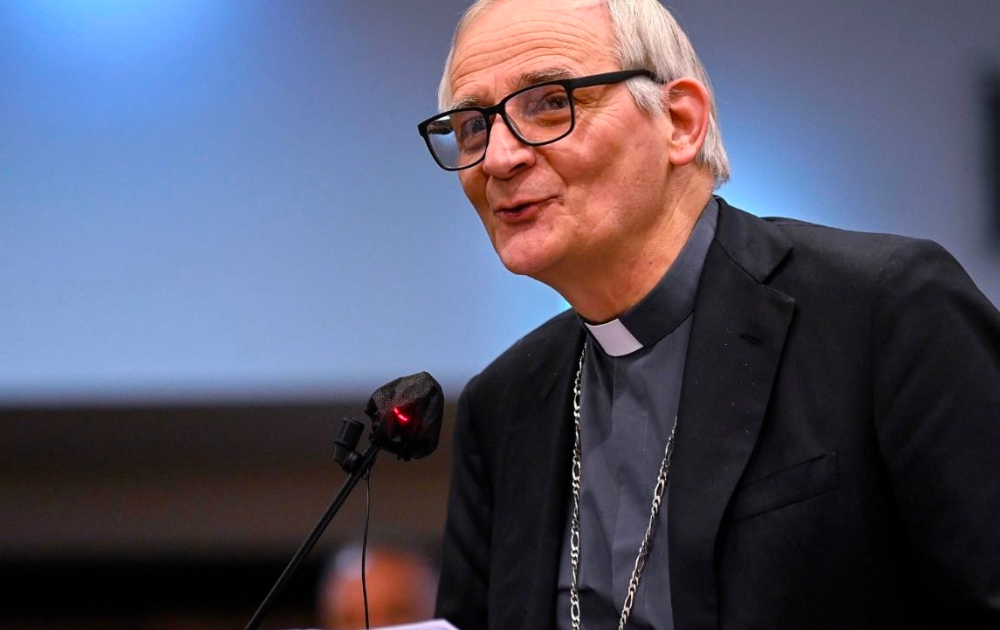
VATICAN CITY (LifeSiteNews) — After weeks of confusion and rumors, the Vatican has announced that a leading cardinal has been tasked with conducing a mission to bring about peace between Russia and Ukraine.
In a statement issued May 20, the Holy See Press Office director Matteo Bruni announced “that Pope Francis has entrusted Cardinal Matteo Zuppi, Archbishop of Bologna and President of the Italian Bishops’ Conference, with the task of leading a mission, in agreement with the Secretariat of State, to help ease tensions in the conflict in Ukraine, in the hope, never resigned by the Holy Father, that this can initiate paths of peace.”
Bruni added that particular details regarding the mission have not been finalized: “The timing of such a mission, and its modalities, are currently being studied.”
In recent days, a rumor had spread among Italian media outlets that Cardinal Zuppi would be part of a two-pronged peace mission from the Vatican. An unofficial but highly regarded Vatican news aggregate site, Il Sismografo, reported May 18 that Archbishop Claudio Gugerotti would be sent to Moscow and Zuppi to Kyiv as part of a peace process.
The news made an immediate impression, but only one day later, Gugerotti issued a statement categorically denying the rumor. The prefect of the Congregation (Dicastery) for Oriental Churches stated that “nothing is known” to him about the rumors concerning his involvement.
All of this is in light of Pope Francis’ comment at the end of April, during which he revealed the existence of Vatican-organized peace talks between Ukraine and Russia. He stated, “I am willing to do whatever needs to be done. Also, there is a mission going on now, but it is not public yet. Let’s see how … When it is public I will talk about it.”
With such a statement understandably causing waves, Ukrainian and Russian officials were quick to rebuff its veracity. Both sides firmly denied any existence or even knowledge of such peace talks.
Andrii Yurash, the Ukrainian ambassador to the Holy See, additionally stated May 3 that “Ukraine doesn’t know about it.” Yurash added that he had a private meeting scheduled with Francis for May 4 and that “I will for sure ask him what it is.”
READ: Zelensky meets Pope Francis but rejects papal plans for peace in Ukraine
Then, Ukrainian President Volodymyr Zelensky then met with Pope Francis at the Vatican on May 13, but even this did not move forward any attempts to effect peace.
The politician and the Pope “agreed on the need for continued humanitarian efforts to support the population,” while Francis “stressed the urgent need for ‘gestures of humanity’ toward the most fragile people, the innocent victims of the conflict,” stated the Holy See Press office at the time.
Zelensky specifically outlined how he had asked for Francis’ support for his peace plan, thus apparently rejecting the Pope’s plan, with Zelenksky’s plan involving “no equality” between Ukraine and Russia in the process.
In addition, I asked [him] to condemn crimes in Ukraine. Because there can be no equality between the victim and the aggressor.
I also talked about our Peace Formula as the only effective algorithm for achieving a just peace. I proposed joining its implementation.
Later that day, when conducting a media round, Zelensky issued a further rejection of the papal plans. “With all due respect to His Holiness, we do not need mediators, we must express actions for a just peace,” he said.
READ: Pope claims a secret peace mission for Russia and Ukraine is underway. Is this true?
“The war is in Ukraine and the peace plan must be Ukrainian,” added Zelensky, who became president in April 2019 after starring in a comedy show for four years that portrayed him as the country’s president and which ended shortly before he won the election.
“I invited the Pope as one of the leaders to work on the formula of peace,” he said, adding, “but we cannot invite Russia, that would block everything.”
For his part, Francis made no mention of their meeting when delivering his customary Sunday Angelus address on the next day, leading commentators to suggest that this was a mark of his own displeasure at how the private meeting had unfolded.
With Zuppi now announced as the papal delegate for peace, many details are still unknown. Bruni did not specify whether Zuppi would be tasked with traveling to Kyiv or Moscow, or perhaps both.
Or have any details regarding a time frame or objectives been issued. With Zelensky so firmly ruling out any peace plan except his own, it is unclear what Zuppi’s remit will be in the negotiations.
Zuppi’s assignment will be of particular import not only for the outcome of any potential peace plan but also for the Catholic Church, with Zuppi widely regarded as papabile — or a possible future pope.

